Grammar practice Writing Worksheets for Ages 3-6
11 filtered results
-
From - To
Discover our diverse collection of Grammar Practice Writing Worksheets designed for children ages 3-6. These engaging activities help young learners develop essential writing skills while mastering foundational grammar concepts. Our printable worksheets incorporate fun illustrations and interactive tasks that keep children motivated and learn through play. With a focus on creativity and critical thinking, these exercises encourage preschool and early school-age children to explore language, sentence structure, and proper usage of punctuation. Perfect for home or classroom use, our resources promote independent learning and spark a love for writing. Make grammar entertaining and effective with our thoughtfully crafted worksheets!
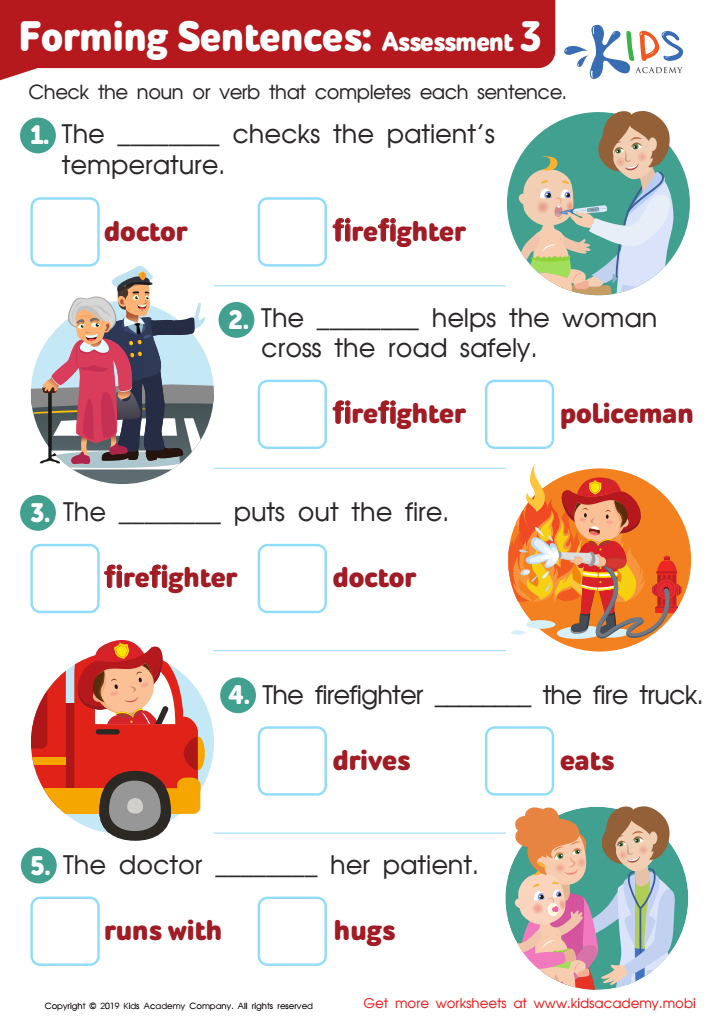

Forming Sentences: Assessment 3 Worksheet
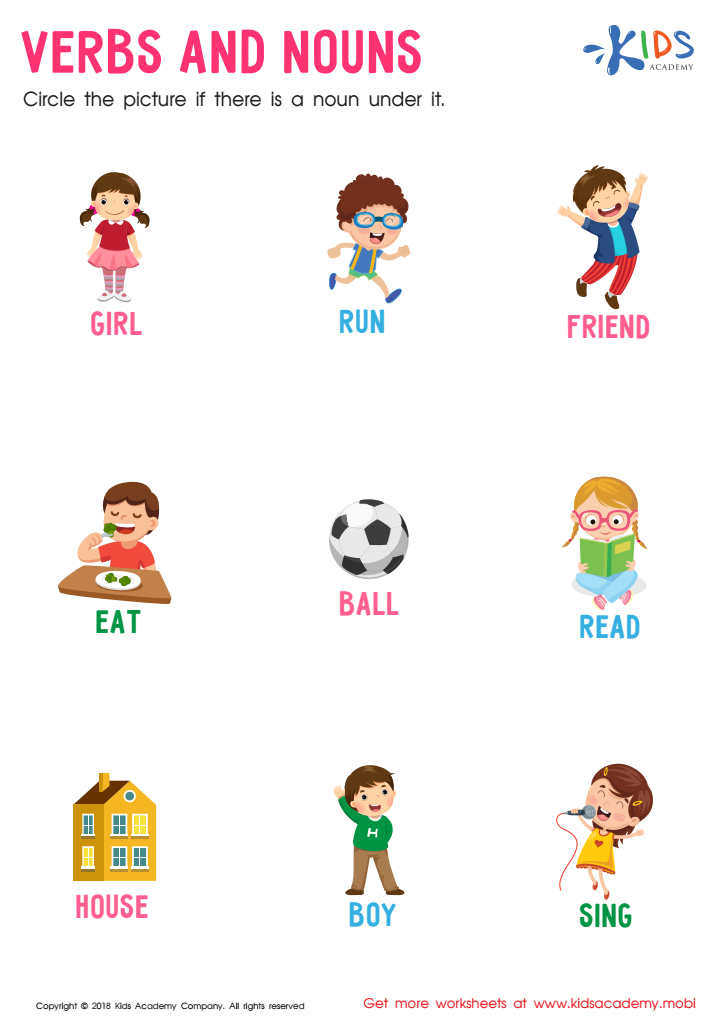

Verbs and Nouns Worksheet
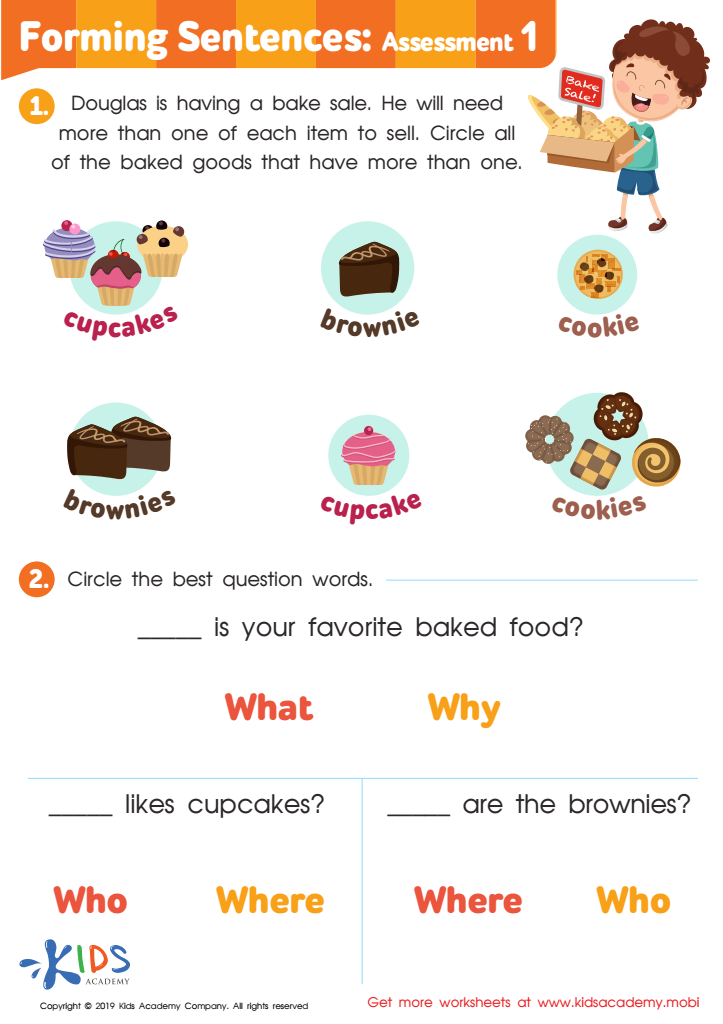

Forming Sentences: Assessment 1 Worksheet
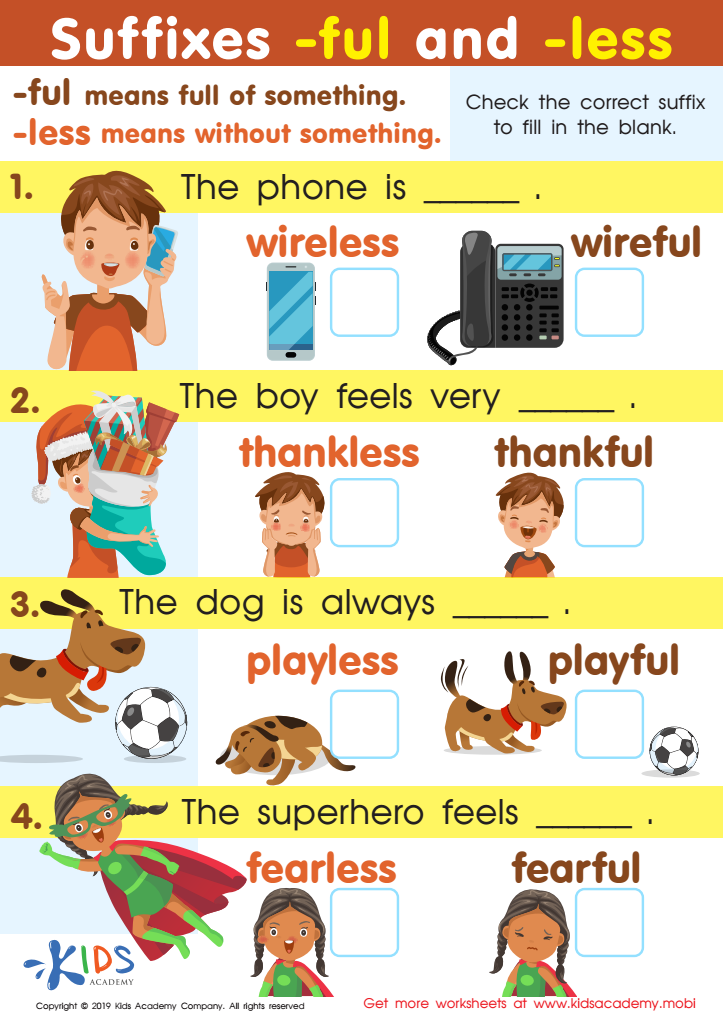

Suffixes –ful and –less Worksheet
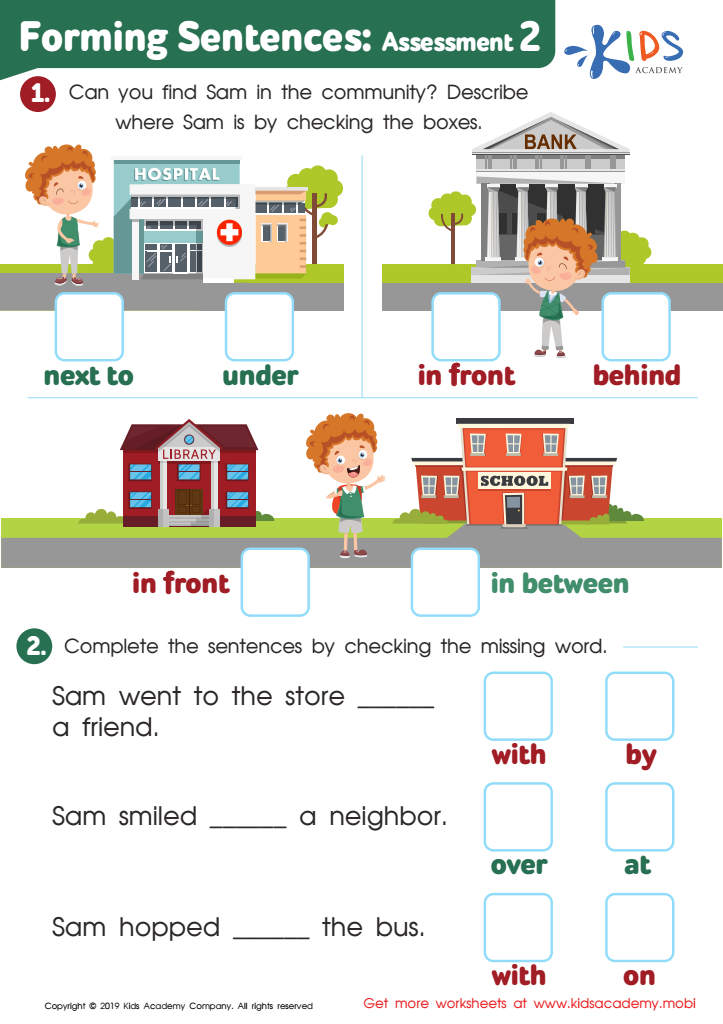

Forming Sentences: Assessment 2 Worksheet
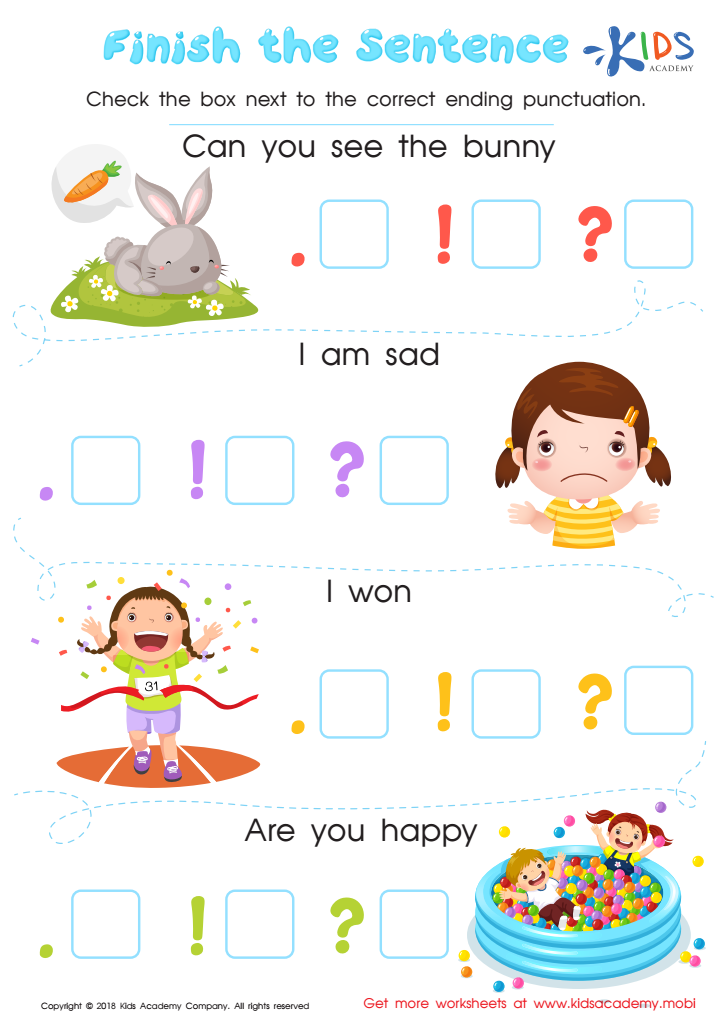

Finish the Sentence Worksheet
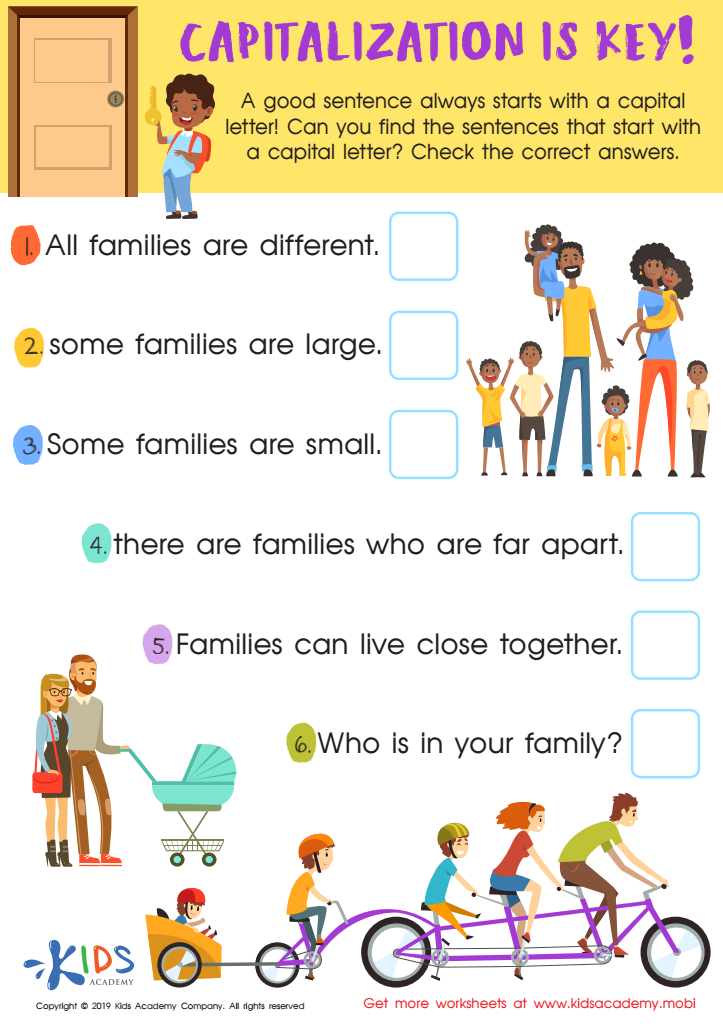

Capitalization Key Worksheet
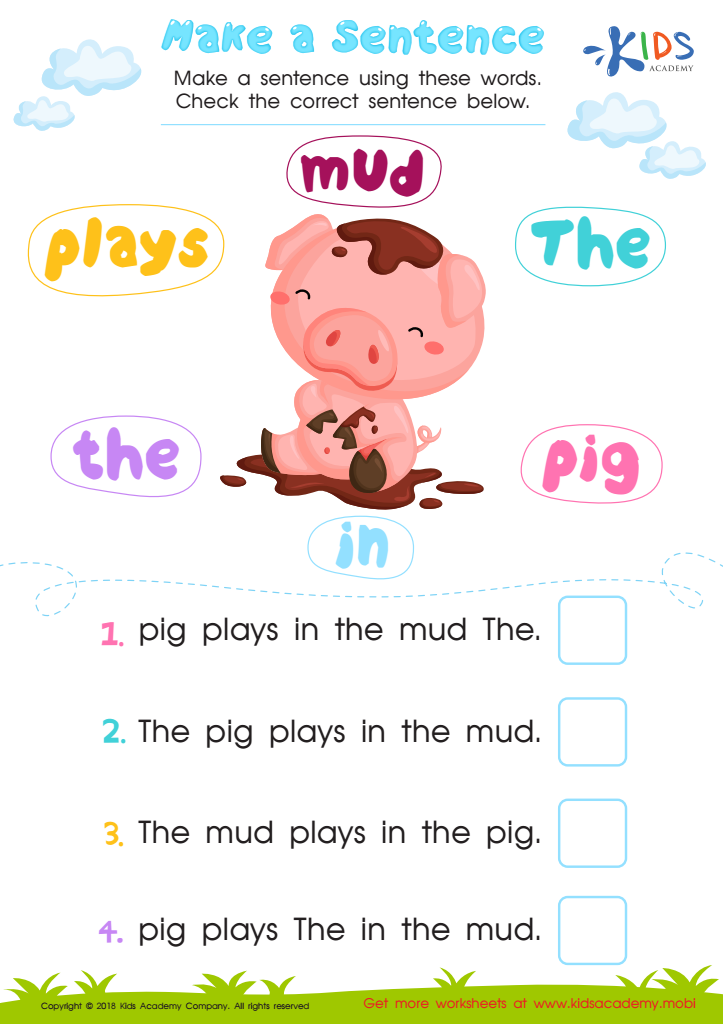

Assessment: Make a Sentence Worksheet
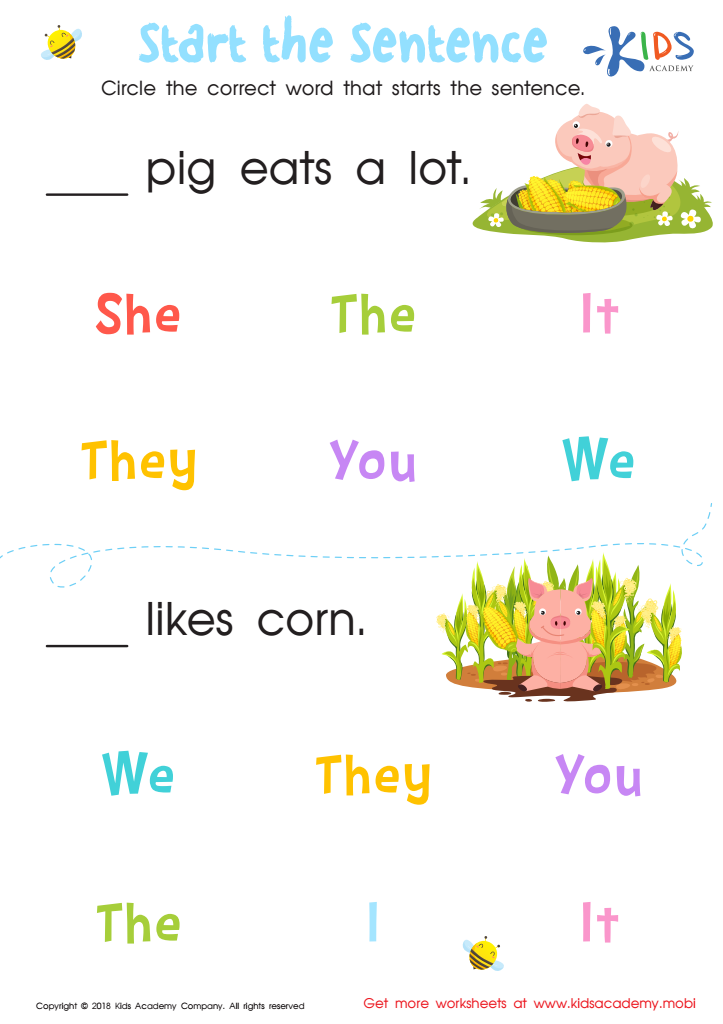

Start the Sentence Worksheet
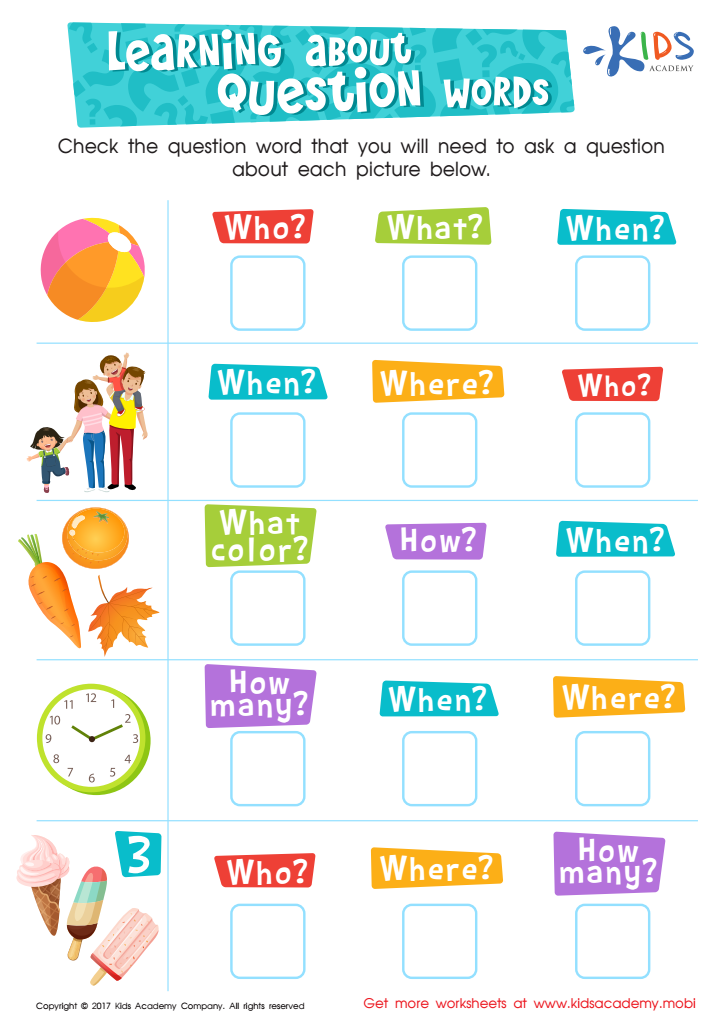

Learning about Question Words Worksheet
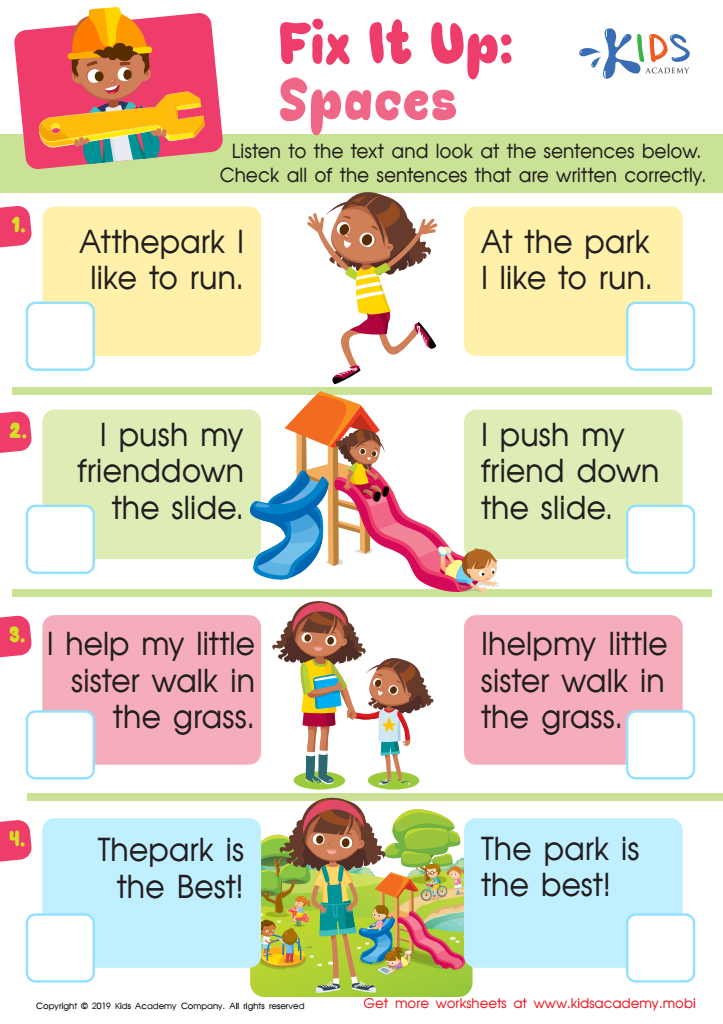

Fix Spaces Worksheet
Grammar practice in writing for children aged 3-6 is crucial for foundational language development. At this age, children are highly receptive to learning, making it an ideal time to introduce basic grammar concepts. Mastering grammar paves the way for effective communication, allowing children to express their thoughts and emotions clearly.
Engaging in grammar practice helps young learners develop critical skills such as sentence structure, punctuation, and the use of nouns, verbs, and adjectives. These elements are not just rules; they are building blocks of writing that foster creativity and imaginative expression.
Additionally, early grammar practice supports cognitive development. It encourages children to organize their thoughts, enhancing logical thinking and problem-solving abilities. Writing activities can nurture confidence as children see their ideas take shape on paper, reinforcing their self-esteem as communicators.
Parents and teachers play a vital role in offering consistent, positive reinforcement to motivate children. By integrating grammar practice into daily activities—like storytelling or simple writing exercises—they create a supportive environment where young minds can thrive. In summary, prioritizing grammar practice lays a strong language foundation, empowering children for future academic success and effective communication in everyday life.
 Assign to My Students
Assign to My Students






.jpg)














